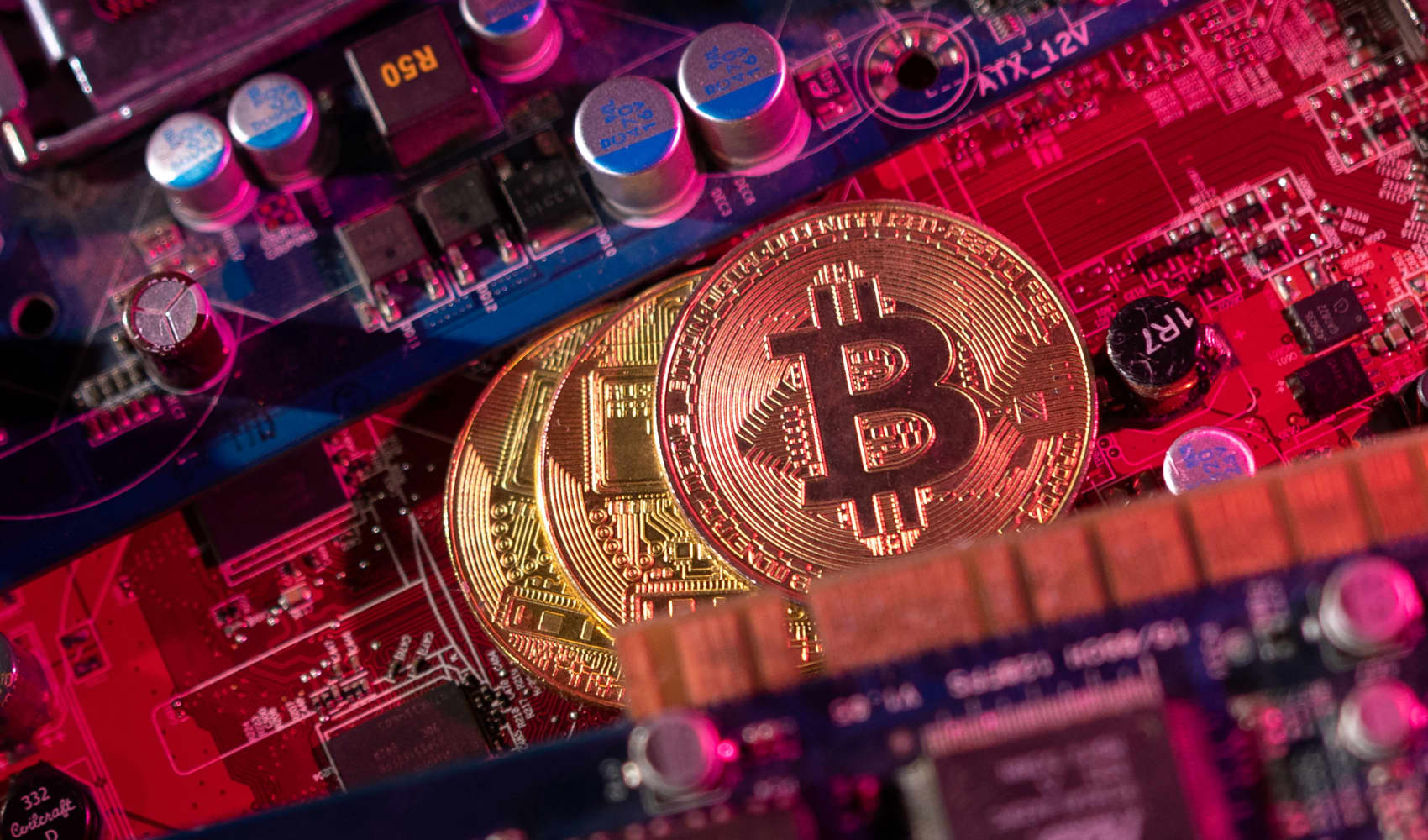
- "Black Swan" author Nassim Nicholas Taleb ripped bitcoin as a "gimmick" that's too volatile to be a currency and an unsafe hedge against inflation.
- "Basically, there's no connection between inflation and bitcoin," the former derivatives trader and current hedge fund advisor told CNBC on Friday.
- Taleb had once believed bitcoin was a promising new currency, because it was not controlled by a government. But he has since changed his mind.
"Black Swan" author Nassim Nicholas Taleb on Friday criticized bitcoin as a "gimmick," telling CNBC he believes it's too volatile to be an effective currency and it's not a safe hedge against inflation.
"Basically, there's no connection between inflation and bitcoin. None. I mean, you can have hyperinflation and bitcoin going to zero. There's no link between them," Taleb said in a "Squawk Box" interview.
Get Southern California news, weather forecasts and entertainment stories to your inbox. Sign up for NBC LA newsletters.
"It's a beautifully set up cryptographic system. It's well made but there's absolutely no reason it should be linked to anything economic," added Taleb, whose bestselling 2007 book examined highly improbable events and their potential to cause severe consequences. He said bitcoin has characteristics of what he calls a Ponzi scheme that's right out in the open.
A Ponzi scheme is a type of fraud whereby crooks steal money from investors and mask the theft by funneling returns to clients from funds contributed by newer investors.
Taleb had once held favorable views toward bitcoin, which was created in 2009 and is the world's largest cryptocurrency by market value. However, he told CNBC he was "fooled by it initially" because he thought it could develop into a currency used in transactions.
Money Report
"Something that moves 5% a day, 20% in a month — up or down — cannot be a currency. It's something else," said Taleb, a former derivatives trader who serves as scientific advisor to hedge fund Universa Investments.
"I bought into it ... not willing to have capital appreciation, so much as wanting to have an alternative to the fiat currency issued by central banks: A currency without a government," Taleb said. "I realized it was not a currency without a government. It was just pure speculation. It's just like a game ... I mean, you can create another game and call it a currency."
While some businesses do accept bitcoin as payment for goods and services, including electric vehicle maker Tesla, there are those in the crypto community who think it's actually an asset and store of value. Bitcoin, which has its supply capped at 21 million tokens, has been described as "digital gold."
"It's easily transportable and can be sent anywhere in the world if you have a smartphone so it's a much better version, as a store of value, than gold," famed value investor Bill Miller told CNBC earlier this week.
"With bitcoin, volatility is the price you pay for performance," added Miller, who has also previously contended bitcoin grows less risky as adoption and its price increases.
Indeed, the price of bitcoin has soared higher in recent months — rising from under $11,000 per unit as recently as October to an all-time high of nearly $65,000 last week. Increased institutional adoption has been cited as one factor in its climb.
In keeping with its propensity for wild price swings, bitcoin has tumbled in the days since, ultimately breaking below $50,000 per token earlier Friday, a 23% drop in a little more than a week. However, the price has still risen more than 70% year to date, according to Coindesk.
Bitcoin has received long-term price targets between $400,000 and $600,000 per token from some people in the investment community, including Guggenheim Partners' Scott Minerd; others have projected even higher than that.
Taleb suggested bitcoin's price is not what informs his now-critical view, saying "bitcoin could go to $1 million" and it wouldn't change his argument. "These gimmicks, you have bitcoin today. You may have another one tomorrow. They come and go, and there's no systematic link between them and the claims they make," he added.
Investors who are worried about inflation would be better off purchasing property than investing in bitcoin, Taleb said. "If you want to hedge against inflation, buy a piece of land. Grow, I don't know, olives on it. You'll have olive oil. If the price collapses, you'll have something."
"But bitcoin, there's no connection and, of course, the best strategy for investors is to own things that produce yields in the future. In other words, you can fall back on real dollars coming out of the company," he said.






